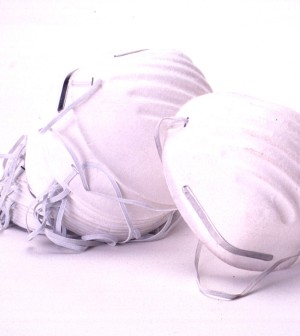- The Best Time of Day to Drink Bone Broth to Maximize Health Benefits
- 8 Ways to Increase Dopamine Naturally
- 7 Best Breads for Maintaining Stable Blood Sugar
- Gelatin vs. Collagen: Which is Best for Skin, Nails, and Joints?
- The Long-Term Effects of Daily Turmeric Supplements on Liver Health
- Could Your Grocery Store Meat Be Causing Recurring UTIs?
- Are You Making This Expensive Thermostat Error This Winter?
- Recognizing the Signs of Hypothyroidism
- 10 Strategies to Overcome Insomnia
- Could Artificial Sweeteners Be Aging the Brain Faster?
September Peak Month for Kids’ Asthma Flares: Study


Many parents know that allergies are seasonal, but fewer may realize that the same is true of asthma: A new study suggests the riskiest time for children with asthma is September, as they head back to school.
Researchers found that the rates of asthma flares were twice as high in that month as they were in August. Not surprisingly, the study also found a more than two-fold higher rate of prescriptions for asthma rescue inhalers in September compared to August.
“Returning to school after summer is strongly associated with an increased risk for asthma exacerbations and unscheduled visits to the primary care physician,” wrote researcher Dr. Herman Avner Cohen, of the Sackler Faculty of Medicine at Tel Aviv University, in Israel.
Results of the study were released online March 10 and will be published in the April print issue of Pediatrics.
Asthma is a chronic disease of the airways. It causes inflammation that makes breathing difficult, according to the U.S. Centers for Disease Control and Prevention. Symptoms of asthma include wheezing, coughing and shortness of breath.
Certain environmental triggers cause asthma symptoms to flare, such as allergens like pollen, mold or dust mites, infections, air pollution, cold weather, exercise and tobacco smoke, the CDC notes. Seasonal variations in asthma symptoms have also been reported, according to study background information.
For the current study, Israeli researchers hoped to better identify when asthma tends to worsen during the year, so that parents and physicians might be better prepared to prevent these flare-ups.
The researchers reviewed five years of health data from more than 900,000 Israeli children between the ages of 2 and 15. From that group, nearly 9 percent (or more than 82,000) had been diagnosed with asthma. Nearly half of the children with asthma were between 2 and 5. Just under one-quarter were between 6 and 9, and just over one-quarter were between 10 and 15.
During the study period, the researchers noted that asthma flare-ups were twice as likely to occur in September as they were in August. They also found that prescriptions for asthma bronchodilators (rescue inhalers) were more than twice as high in September compared to August.
They also saw another rise in asthma flare-ups in late fall, and intermittently throughout the winter, according to the study.
During the summer months, fewer prescriptions were filled for asthma medications. The researchers suggest this means that the use of asthma-controlling medications is likely at its lowest level of the year just before children return to school.
Other factors that may cause a rise in September are fall allergies, and greater exposure to infections because children are congregating together at school.
The study reinforces what health professionals already suspected, one U.S. expert said.
“People get lax about taking asthma medications in the summer, and then children are exposed to viral infections when they go back to school. It’s a high viral time. And, it’s a high allergy time, too,” said Dr. Jennifer Appleyard, chief of allergy and immunology at St. John Hospital and Medical Center, in Detroit.
“It’s important to remember that just because your kid is doing well in the summer, don’t stop or change asthma medications without talking to the doctor,” she said.
“Asthma flares are often triggered by allergies and infections, and those things occur in seasonal patterns. But, the seasons may vary depending on where you live and what your triggers are,” Appleyard explained.
Dr. Len Horovitz, a pulmonologist at Lenox Hill Hospital, in New York City, said, “You need to know what your individual triggers are, and try to avoid whatever factors you can avoid.”
“In the spring, asthma may flare because of allergies. In the summer, there can be ozone peaks that exacerbate asthma,” he said. “In the fall, it can be allergies and infection, and in the winter, it can be cold weather, indoor allergens and flu.”
Like Appleyard, Horovitz said what’s most important is to use your asthma medications as directed.
“Most people tend to slack off on their medications when they’re feeling well,” he said. “But, if you’re doing well, it’s because you’re taking your medicine. It’s hard to take medicine when you don’t feel bad, when you’re not relieving something, but with asthma, like with cholesterol or blood pressure, it’s necessary.”
More information
Learn more about asthma triggers from the U.S. Centers for Disease Control and Prevention.
Source: HealthDay
Copyright © 2026 HealthDay. All rights reserved.










